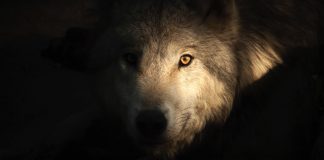Corina Matei
The revival of Christian morality
"With architecture we build buildings, with mechanics we build machines; is there no place among the sciences for one dedicated to human beings? Ethics is capable of working out the principles according to which a person must be 'built' in order to be truly human" (Traian Herseni).
The Bible as a sign of offence
“‘The days are coming,’ declares the Sovereign Lord, ‘when I will send a famine through the land—not a famine of food or a thirst for water, but a famine of hearing the words of the Lord. People will stagger from sea to sea and wander from north to east, searching for the word of the Lord, but they will not find it’” (Amos...
The decline of intelligence
"You cannot recognise the wisdom of a wise man whom you have not tested" (Papyrus Insinger, XII, 15).
Loving your neighbour | “And who is my neighbour?”
“And Who Is My Neighbour?” asked a Jewish teacher of the Law when Jesus Christ told him that eternal life entails observing two commandments: to love God and to love one’s neighbour.
The theology of the cross and the “theology” of the coming of age
When we try to understand our fellow human beings, to grasp their thinking, the reasons behind their decisions, and the purpose of their actions, a familiar adage from popular wisdom comes to mind: “Put yourself in their shoes.”
From martyr to student, or how to be a superficial viewer
It is said that the intelligent and cynical Talleyrand, a French diplomat and Catholic priest who was later secularised, said to Napoleon when asked to devise a political message: "Sir, give me the idea and I'll find the arguments myself..." If such an intellectual attitude is cynical and unscrupulous in politics, let's imagine the consequences in the religious sphere.
How the soul breathes
“We need a bigger vision in prayer. We need God’s vision! Let’s keep praying and daring to ask for more—for God’s glory, that the gospel may go into all the world, into all nations, that Jesus may come!”
The problem with chronic desiderative thinking
“Yeah, I understand what you’re saying about Christianity. I’ve been there, a long time ago, but now that I’ve moved on, I have a different relationship with the universe and things are going much better for me on all levels.”
The end of the world, overlooked by philosophy
"Logic suffers from a great logical fallacy: it believes that reality itself is of a logical nature. If it encounters something that cannot be understood logically, it will claim that this something doesn't exist, but only appears to exist..." (Lucian Blaga, Horizons and Stages)
The saving emotional intelligence
“Many people feel out of touch with their feelings. Counselor offices and publishing houses have proliferated thanks to the need to help people to improve their communication skills, to restore their self-confidence and to help them relate to other people.” – Sir Ken Robinson, Out of Our Minds: Learning to be Creative
The “background noise” of free will
What would you say if you read an article that tells you that the human ability to make choices freely and consciously—that is, free will—might just be an illusion? What if the article backs up its claims with scientific research? Such curiosity is sparked by an article published on livescience.com.
The ideal of a couple
I recently watched a TV show in which the guests, which included professors and psychotherapists, when asked about the feminine ideal in the contemporary world, expressed opinions that seemed strange to me: that such an ideal would no longer be detectable or would no longer have a purpose, today...
The dance of the “wolves”
Beyond the artistic accolades of "The Wolf of Wall Street" lies a troubling “recognition”—that of the real man who inspired the character Jordan Belfort and who, after 22 months in prison, presented his exploits in an autobiographical book.
The discovery of our century: t = t
"There is a time for everything, and a season for every activity under the heavens" (Ecclesiastes 3:1).
How does the calming prayer help us manage volcanic emotions?
“I live in a high and holy place, but also with the one who is contrite and lowly in spirit, to revive the spirit of the lowly and to revive the heart of the contrite" (Isaiah 57:15).


























